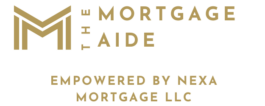FHA Loan
Highlights of the FHA Loan
(1) Low downpayment of 3.5% (2) Great for those with less than perfect credit scores (3) Higher approval rates

Eligibility
Here are some of the eligibility requirements for the FHA Loan program. Select ‘Get Started’ to check if you’ll be a good fit.
A credit score of 580 or higher is required to qualify for a 3.5% down payment.
Borrowers with scores between 500–579 may still qualify but must provide a 10% down payment.
The minimum down payment is 3.5% of the home’s purchase price for those meeting the credit score requirement.
Funds for the down payment can come from personal savings, gifted money, or down payment assistance programs.
FHA loans typically require a DTI ratio of 43% or lower, though exceptions can be made for borrowers with strong compensating factors.
Borrowers must pay upfront mortgage insurance premium (UFMIP) which is 1.75% of the loan amount (can be financed into the loan) and an annual mortgage insurance premium, which is included in monthly payments.
Borrowers must typically wait:
Two years after a Chapter 7 bankruptcy discharge.
Three years after a foreclosure.
Exceptions may apply for extenuating circumstances.
The loan amount must fall within the FHA loan limits, which vary by county and are based on local housing prices.
Common Questions
What are the advantages of FHA loans over conventional loans?
FHA loans have lower credit score requirements, smaller down payment options, and more lenient debt-to-income ratio limits. They’re ideal for first-time homebuyers or those with less-than-perfect credit.
Are FHA loans only for first-time homebuyers?
No, FHA loans are available to anyone who meets the eligibility requirements, not just first-time homebuyers. However, they are particularly popular among first-time buyers because of their low upfront costs.
What types of properties can I buy with an FHA loan?
FHA loans can be used to purchase single-family homes, multi-unit properties (up to 4 units), condominiums, and certain manufactured homes. The property must serve as the borrower’s primary residence and meet FHA appraisal standards.
Can I use an FHA loan to buy a fixer-upper?
Yes, the FHA offers a 203(k) loan program, which allows borrowers to finance both the purchase price of a home and the cost of repairs or renovations in a single mortgage.
Can I refinance with an FHA loan?
Yes, FHA loans offer refinancing options, including:
FHA Streamline Refinance: A simplified process with minimal documentation and no appraisal required (for current FHA borrowers).
FHA Cash-Out Refinance: Allows borrowers to access home equity, subject to eligibility.
Other Info
An FHA loan is assumable, meaning a qualified buyer can take over your loan if you sell your home. This feature can be valuable in a rising interest rate environment, as the buyer could inherit your lower rate.
Unlike some other loans, FHA loans do not have prepayment penalties. Borrowers can pay off their mortgage early without incurring additional fees.
In addition to the down payment, FHA loans come with closing costs, which typically range from 2% to 5% of the loan amount. These include appraisal fees, lender fees, and prepaid expenses like homeowners insurance and property taxes. Some costs can be negotiated or covered by seller concessions (up to 6% of the home’s price).
